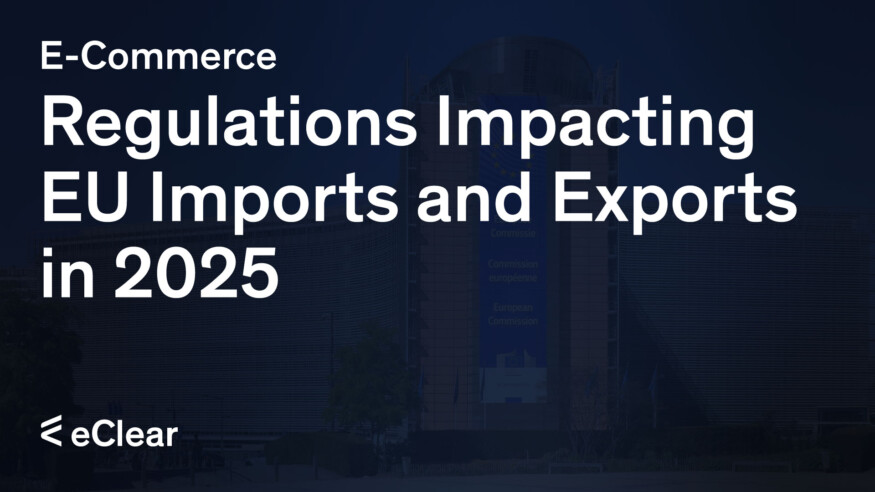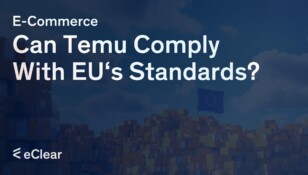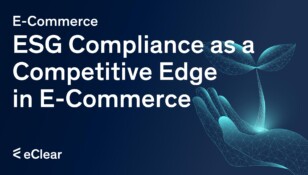Carbon Border Adjustment Mechanism (CBAM)
The Carbon Border Adjustment Mechanism, or CBAM, has entered its next phase. As of 1 January 2025, businesses importing carbon-intensive products such as steel, aluminium, fertilisers, and electricity into the EU must submit detailed reports based on EU-mandated methods.
Additionally, the CBAM Registry now includes a portal where operators outside the EU can share installation and emissions data with reporting declarants. Declarants should also apply for “authorised CBAM declarant” status in 2025, ahead of its mandatory enforcement in 2026.
These steps aim to support the EU’s sustainability goals while creating a more transparent import process. If your business is affected by CBAM you should assess your supply chains and data collection systems to ensure smooth compliance.
→ Official Website of the European Commission informing about CBAM
European Union Deforestation Regulation (EUDR)
The EU’s Deforestation Regulation takes another step forward in 2025. Originally scheduled for late 2024, large companies now have until 30 December 2025 to comply with the rules, while small and micro-enterprises have until mid-2026.
Under EUDR, businesses trading goods such as coffee, soy, or timber must implement due diligence systems to prove their products are deforestation-free. This includes assessing risks, maintaining relevant documentation, and adopting mitigation strategies where necessary.
The timeline extension offers companies more time to prepare, but early action is advisable to avoid bottlenecks as the deadline approaches.
→ Official Website of the European Commission informing about EUDR
Ecodesign for Sustainable Products Regulation (ESPR)
The Ecodesign for Sustainable Products Regulation aims to reshape how goods are produced and consumed in the EU. The ESPR introduces ecodesign requirements, a Digital Product Passport, and measures to address the destruction of unsold consumer products.
2025 will see the adoption of the first ESPR working plan, identifying priority products for the years ahead. Additionally, technical preparations for the Digital Product Passport are already underway.
Businesses should anticipate these changes and start considering how they will meet ecodesign requirements and manage the additional data collection and transparency requirements introduced by the Digital Product Passport.
→ Official Website of the European Commission informing about ESPR
Safety and Security Declarations for EU Imports into the UK
From 31 January 2025, goods imported from the EU to Great Britain must comply with safety and security declaration requirements. The Entry Summary Declaration (ENS) has been streamlined to reduce the mandatory data fields to 20, with 8 conditional and 9 optional fields.
While the responsibility for submitting these declarations lies with carriers or hauliers, businesses must ensure collaboration across supply chain stakeholders to avoid delays or compliance issues. This regulation underscores the importance of visibility and communication across the logistics chain.
→ Official Website of HM Revenue & Customs informing about the declarations
European Union Combined Nomenclature (CN)
The latest version of the EU Combined Nomenclature comes into effect on 1 January 2025. This critical classification system determines customs duties, statistical reporting, and trade compliance for goods entering or exiting the EU.
Businesses must update their product databases to reflect any changes to CN codes to avoid incorrect declarations, penalties, or delayed shipments. Ensuring your master data and templates are accurate is vital for smooth operations under the updated system.
→ Official News Article by the EU Taxation and Customs Union
Staying Ahead of Change in 2025
The evolving regulatory landscape in 2025 forces businesses that are importing into the EU or exporting from the EU to take action. By taking proactive measures to align with CBAM, EUDR, ESPR, safety declarations, and the updated Combined Nomenclature you can ensure compliance and smooth operations.
Let’s stay in touch!
Stay up to date on the latest market trends, best practices and regulatory changes affecting cross-border trade by following us on LinkedIn.







